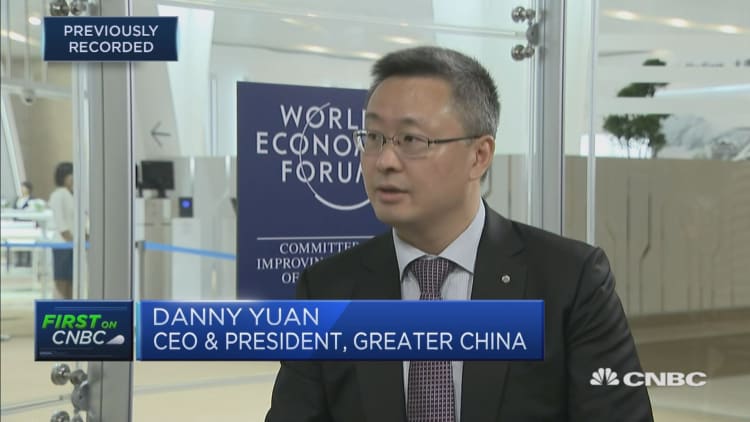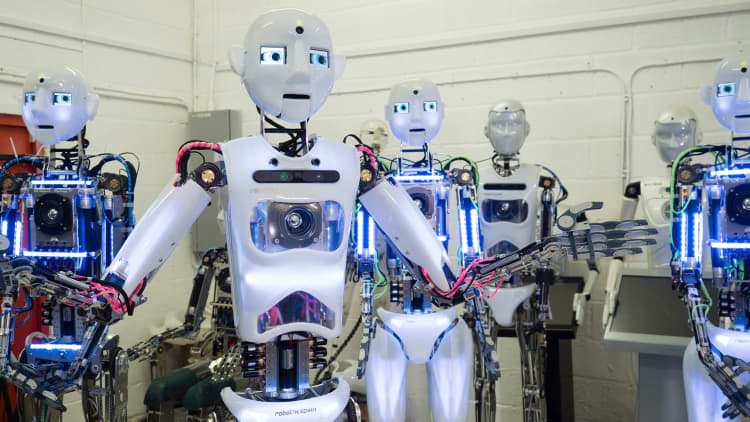
Chinese workers are insufficiently trained in technology and need to upgrade their skills in order to be aligned with new trends like automation and artificial intelligence, a recruitment expert said on Tuesday.
In the long run, China has to shift its agenda to focus on the quality of the labor market, instead of the quantity, Danny Yuan, CEO and president at the Manpower Group (Greater China), told CNBC at the World Economic Forum in Tianjin.
"In China, the majority of labor force population (has) low tech knowledge. So I think the companies have more agenda to hire the highly skilled (for their) needs, but unfortunately the individuals who (are) in the labor workforce market (are) still low skilled."
In particular, the workforce needs to learn how to work with new tech areas such as big data and artificial intelligence, he pointed out. Big data usually refers to large volumes of information that can be analyzed to discover patterns and trends.
Even with automation and robots that have been developed to support the workforce, Yuan said that ultimately, humans still have to be sufficiently skilled to operate the machines as robots only perform the tasks.
"In China, another challenge is this population trend," he added, pointing to how the workforce is at about 900 million but going down. Forecasts have indicated that by 2035, it could be as low as 700 million, he said.
"So now, (shifting) the efficiency together with the trend of the population will be quite challenging in the public and private sector," Yuan concluded.
Machines will overtake humans in terms of performing more tasks at the workplace by 2025 — but there could still be 58 million net new jobs created in the next five years, the World Economic Forum said in a report on Monday.
AI and robotic machines are expected to perform about 42 percent of all current tasks in the workplace by 2022, compared to only 29 percent now, according to firms surveyed by WEF. Humans are expected to work an average of 58 percent of task hours by 2022, up from the current task hours of 71 percent.
WATCH: Will robots take our jobs?

— CNBC's Saheli Roy Choudhury contributed to this report.


